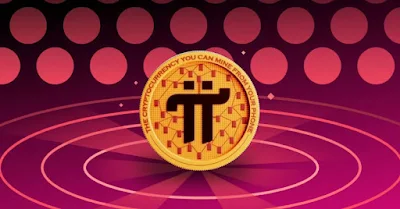Pi Network is a social cryptocurrency that has more than 35 million active Pioneers and is quickly becoming famous. Unfortunately, this has caught the attention of bad actors who are trying to take advantage of people who aren't careful. The spread of fraudulent "airdrop" schemes is one prevalent approach. Scammers try to lure customers in with the promise of free Pi coins in an effort to get them to give up their account security. Keep your wits about you! Please be aware that Pi Network does not engage in airdrops and should be suspicious of any assertions to the contrary.
Hey there!
There has been an uptick in the number of cryptocurrency scams that target users of various platforms who own digital assets. Because of its massive user base, the Pi Network is an easy target for these types of scams. In example, scammers are increasingly using airdrop schemes to trick customers. For Pi Pioneers to protect their digital assets, it is critical to understand how these frauds work and to establish strong security measures.
Let's take a closer look into Pi Network airdrop frauds, identify the methods con artists use, and provide you with the information to safeguard your assets.
Tell me about airdrops.
Understanding what a real airdrop is is crucial before learning about the ins and outs of Pi Network frauds. As a marketing approach, airdrops are commonly used in the bitcoin sector. Many different wallet addresses receive tiny quantities of cryptocurrency tokens from various projects or businesses. Some possible objectives of airdrops are:
- Getting the word out: Bringing a new coin to more people.
- Incentivizing involvement and community building: rewarding early adopters.
- Getting people talking about a project: making them excited and interested in it.
How to Spot an Airdrop Scam from Pi Networks
In order to deceive naive Pi Network users, con artists cleverly leverage the idea of airdrops. Their typical strategies are as follows:
- Con artists use social media impersonation to trick their victims into giving them their money by creating phony profiles that seem like the legitimate Pi Network channels. To trick people into thinking they are the real deal, they could utilize identical identities, profile images, and branding aspects.
- Guarantees That Don't Hold Water: Fraudsters promote fake airdrops that promise users a huge quantity of free Pi coins. Some people may be too eager to take advantage of the offer of quick cash and end up falling for the trap.
- Phishing Websites: Scammers frequently use phishing websites to trick unsuspecting users into visiting malicious sites that appear to be legitimate ones, such as the official Pi Network page. Websites like this trick people into giving up sensitive information, such as their Pi Network login credentials or, worse, their Passphrase.
- Scammers might infect consumers' devices with malware or lead them to phishing websites with links they share through social media posts, messages, or ads.
Pi Network Airdrop Scams and How to Avoid Them
There are serious repercussions in the event that a fraudster gains access to your Pi Network credentials or, even worse, your Passphrase:
- Pi coins stolen: If scammers manage to get their hands on your Pi Network wallet, they can take all of your precious Pi coins.
- Account Compromise: Scammers may damage your reputation in the Pi Network community by using your compromised account to distribute more scams or engage in other harmful behaviors.
- Identity Theft: Scammers can utilize the personal information you give on phishing websites to steal your identity.
Be Wary of Pi Network Airdrop Frauds!
You can protect yourself from these scams by being cautious and skeptical. Important steps that you can do are:
- Keep in Mind: Pi Network Is Not Involved in Airdrops Pi Network has made it clear time and time again that airdrops are not part of their operations. Be wary of any assertions of a Pi Network airdrop.
- Because it serves as the master key to your Pi Network account, your passphrase should never be shared. Never, ever give it out to anyone, not even legitimate Pi Network representatives or websites.
- Social Media Caution: Use caution when interacting with others on social media sites. Even seemingly official accounts or pages advertising Pi Network airdrops might raise red flags. Before you start interacting, make sure the username, logo, and official verification badge are correct. Keep in mind that Pi Network will never use unapproved channels to announce airdrops.
- Stay Away from Questionable Links: When you see a link in an ad, message, or social media post—especially one offering free Pi coins—don't click on it. Phishing websites or virus downloads could be accessed through these connections.
For the most up-to-date information on Pi Network, make sure to visit their official website or follow them on verified social media.
Make Your Voice Heard: Notify the Pi Network staff and the community at large if you come across anything fishy, such as an apparent Pi Network airdrop scam.
In summary
Scams involving Pi Network airdrops can affect users who aren't careful. You can protect your Pi coins and online presence by learning the tricks scammers use and implementing strong security measures. You should be wary of any claim that offers free Pi because Pi Network does not engage in airdrops. Keep an eye out, exercise caution, and make protecting your Pi Network account a top priority. If we band together, we can make the Pi Network a lot more secure and safe for everyone.
Added Hints:
- Two-Factor Authentication (2FA) should be enabled: By using two-factor authentication, you may greatly increase the security of your Pi Network account.
- Remember to Update Your Software: To lessen the likelihood of security breaches, always use the most recent versions of your browser and devices.
- Inform Other People: Help your friends, family, and fellow Pi Network users from falling victim to airdrop frauds by sharing what you've learned about them.
You can stay safe from Pi Network airdrop scams and have a great time in the Pi Network ecosystem if you follow these instructions and are cautious.






0 Comments